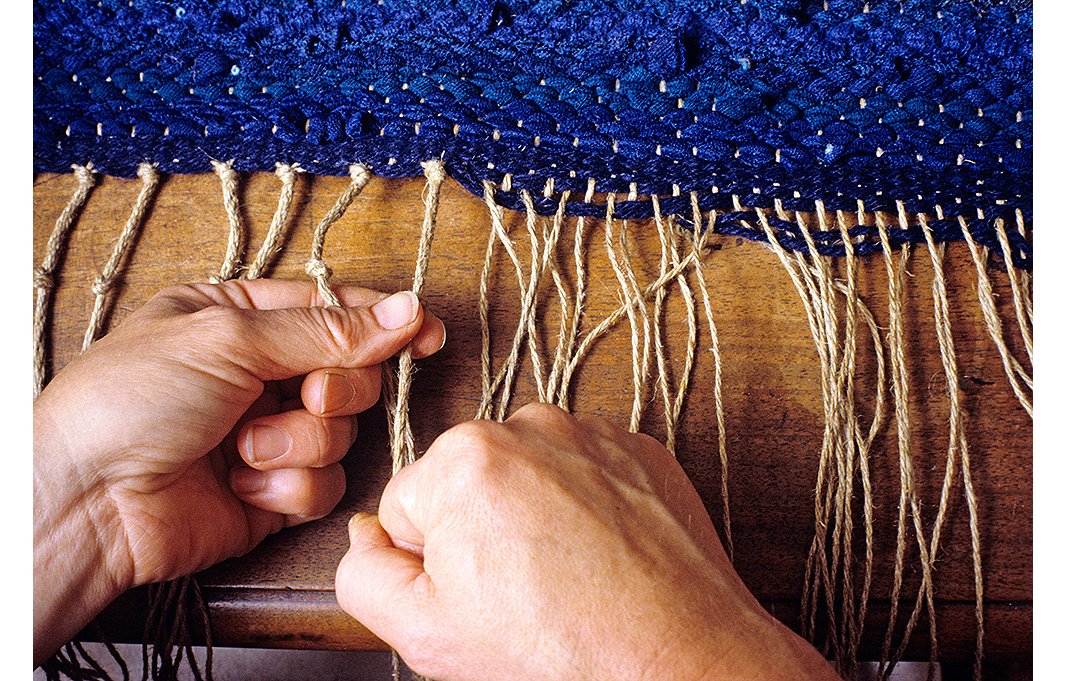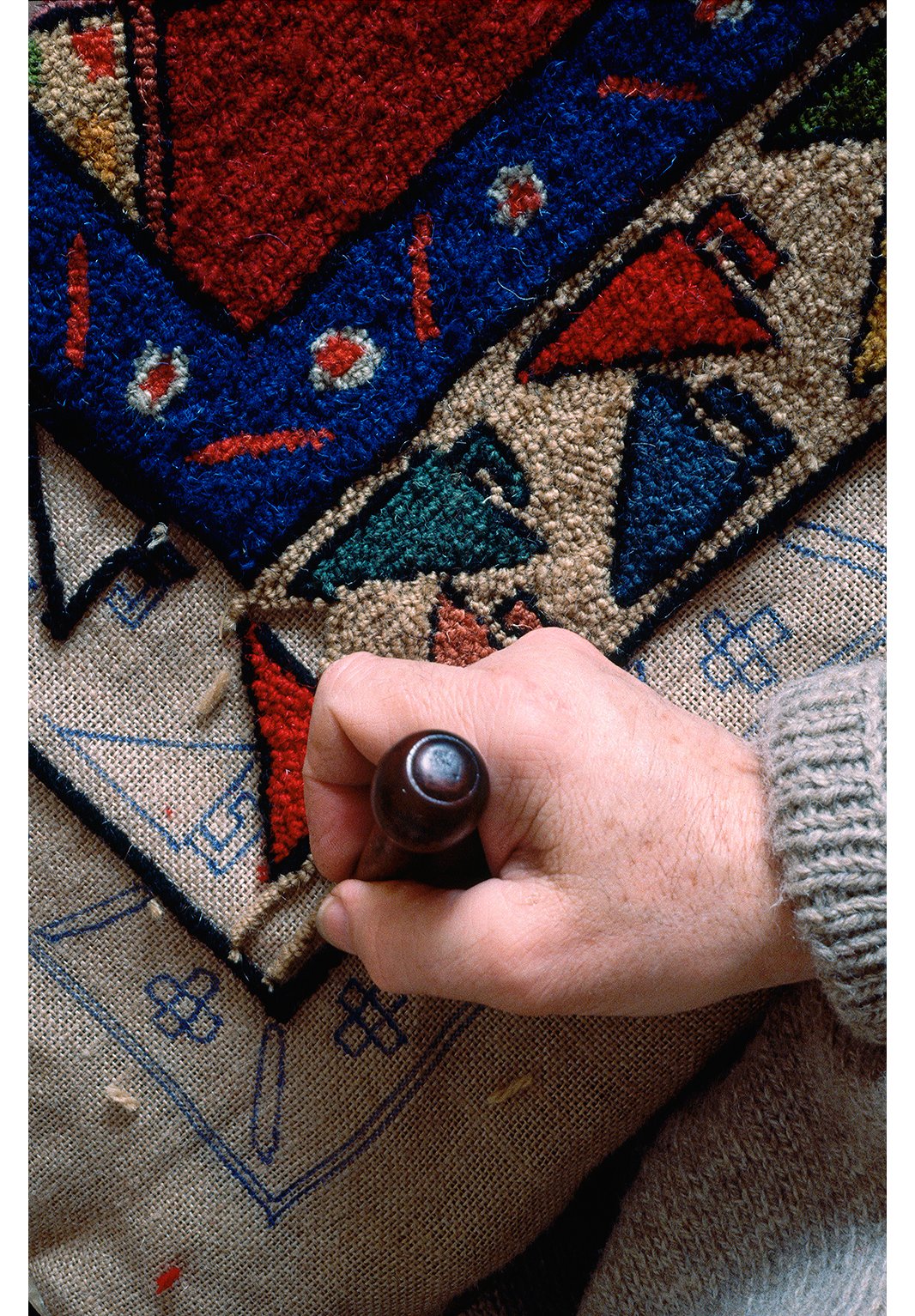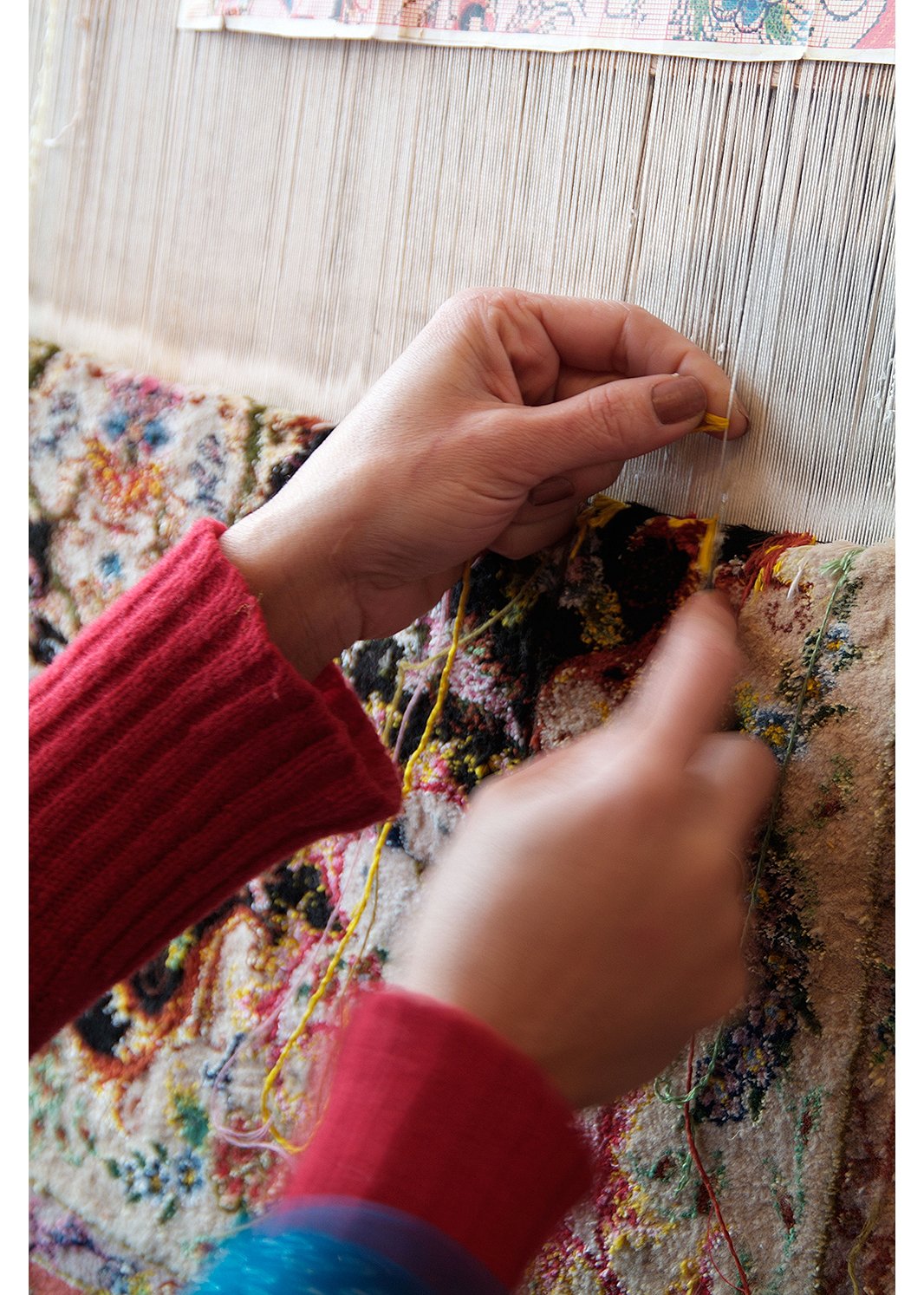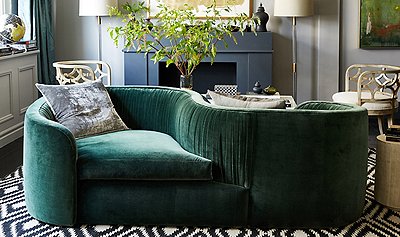
Construction refers to how a rug is made, which makes all the difference. Whether it’s a hand-knotted rug or a hand-hooked one, the construction matters: It will determine the look, texture, quality, and longevity of your rug. Here are a few common rug constructions to note when choosing a rug.

TUFTED RUGS
Tufted rugs are created without knots. Instead, loops of yarn are pulled through the rug’s backing material using a machine or a hand-held tool. The loops are then sheared to create a smooth cut-pile surface. Since less work is involved than in the construction of a hand-knotted rug, even the highest-quality tufted rugs can be produced relatively quickly and inexpensively. One thing to note: Tufted rugs shed more than other rugs and may require more-frequent vacuuming.
Best for: Family rooms, bedrooms, or living rooms

HOOKED RUGS
Hooking is similar to tufting, but the yarn loops stay intact. Loops of yarn are pulled through the rug’s backing material using a machine or a hand-held hooking needle. Instead of being sheared like tufted rugs, the loops are left alone, creating a knobby embroidered look.
Best for: Family rooms, bedrooms, or living rooms

FLAT-WEAVES
Flat-weaves do not have a pile, because they are woven on a loom. Flat-woven rugs are made by hand or machine by weaving vertical yarns (warps) through the horizontal yarns (wefts). Because they are not woven onto a backing, the rugs are reversible.
Best for: High-traffic rooms and spill-prone areas like the kitchen, playroom, or entryway

HAND-KNOTTED RUGS
This is the most labor-intensive rug-making technique. Weavers tie individual knots to the warp yarns that make up the length of the rug. These knots form the surface, or pile, of the rug. Because they are crafted by artisans, no two hand-knotted rugs are exactly alike.
Best for: Formal gathering spaces like the living room or great room
For More About Rugs, Check Out…
Rug Sizes: A Room-by-Room Guide
What Rug Material Is Right for Your Home?
Rug Pile: The 5 Things You Need to Know






Join the Discussion